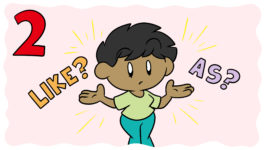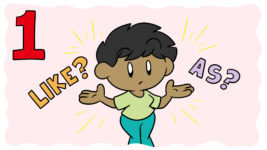Mental illness is an area frequently misunderstood by authors and readers alike. The temptation to examine the human condition through characters who think or behave in ways we find strange is a common theme in literature, and yet more and more of society is waking up to the fact that frivolous depictions of mental illness can have serious real-world implications.
That’s why in this article, I’ll be looking at how authors can strive to fairly and accurately present mental health problems in their stories and characters, and examine the reasons they might want to do so. Real people are the sum of a great many parts, so I’ll be looking at important but widely misunderstood, or misrepresented, contextual factors that authors should consider when creating their characters.
What’s the harm?
Because mental illness is so widely misunderstood, it may not be readily apparent to authors why depicting it accurately is so important.
The most vital thing to grasp is that in a society where mental illness is still commonly misunderstood, many people get their primary impressions from works of fiction. This has led to a great many misconceptions, for example the idea that mental illness leads inexorably to violence, and to confusion regarding disorders – for instance the perception that schizophrenia is the same as multiple personality disorder, or that obsessive compulsive disorder is the mere impulse to keep things clean.
Misconceptions like this mean that those suffering from mental health problems often face a world which believes they are exaggerating their problems, or that they are a potential source of harm to those around them.
In fact it’s becoming increasingly clear that mental illness exists on a wide spectrum, and is a part of many people’s lives – a 2013 study found that an estimated 43.8 million adults in the US had experienced mental health problems within the past year.
It’s clear that mental illness is an issue which both affects and is misunderstood by a great many people. Consequently, authors find themselves in an environment where, whether they’d wish it or not, anything they write about mental illness has the potential to shape their readers’ opinions. This prompts a single, very important question…
Should I write about mental illness?
As mentioned above, writing about mental illness carries an automatic responsibility. The best answer to whether or not you should write about mental illness is therefore ‘yes, if you feel like you have a relevant insight.’
This insight could be anything – whether it’s a commentary on how those with mental health problems are treated, personal experience of mental illness itself, or just the desire to depict a character who is experiencing a mental health problem but is not defined by it. What’s important to note is that with the current societal view of mental illness, it’s reckless to employ mental illness in your writing without thinking about what it says to your audience.
For example, if an author was trying to establish a young character as uncomfortable at home, it might seem easy to write their parent as possessing a mental illness which makes their homelife difficult. This might not be an inaccurate depiction of some people’s situation, but it does feed a harmful stereotype for no good reason – it would be just as easy to create an unpleasant homelife via a bereavement, or relationship problems between parents.
This is what I mean by ensuring that your use of mental illness includes relevant insight. If mental illness can be functionally replaced by another situation in your writing then you’re in a territory where that choice is likely to do more harm than good. This includes characters who are characterized as having mental health problems simply because there doesn’t seem to be another way to motivate them…
The ‘insane’ villain
Writing about real-world mental illness, or realistic characters who are experiencing mental illness, is one thing, but literature also has a long history of ‘crazy’ characters. These characters possess a fantastical, fictional form of mental illness which bears no relation to real world instances, but rather serves as a starting point for motivations or situations with little other justification.
This can be seen in books such as Fight Club, where the protagonist exhibits a form of multiple personality disorder, committing acts of intense violence against others with no awareness of his own behavior. Though the story is undeniably titillating, it would not be unfair to argue that people experiencing mental health problems have been unfairly demonized by Fight Club’s narrative.
Other extremes in villainy
Mental illness is often embraced by authors as a great explanation for the actions of larger-than-life villains. The logic goes that the character is fueled by their mental illness, and this explains any actions which logic or previous characterization don’t. While this is problematic in terms of how it reflects on real mental illness, it can also ruin a story by providing insufficient backstory for a character.
In situations such as this, writers often fall back on justifying a character’s mental illness rather than building their characterization. In Hannibal Rising, for example, Thomas Harris recounts the events that led to the mental illness of his famously cannibalistic villain.
The problem is that the character’s actions and beliefs can’t be fully justified to the reader, since this would be ideology rather than the ‘madness’ such authors intend. The end result is that backstory is replaced by a kind of themed trauma – the character is ‘broken’ by circumstances which give a shape to later obsession.
This means that their actions are not a result of consistent characterization, but rather written to coincide with the theme of their supposed mental illness. This leads to simplistic characters who do not read as real people – in fact the idea of themed madness might remind some authors of the comic book superhero Batman and his enemies. These characters are commonly depicted as possessing a specific form of ‘madness’ which revolves around a particular motif: riddles, jokes, penguins, etc. When handled lazily, supervillain the Joker does not need any more reason to commit crimes than Hannibal Lector needs a reason to eat people – their psychological damage is their sole motivation, and the reader must look elsewhere for character depth.
Ideology, on the other hand, has a far more complex relationship with character. A belief system must be created, and then coincide with a person’s later experiences. Character consistency is once again required, and authors find themselves writing deeper and more fully rounded characters.
In real-life, mental illness is just one part of a person’s life experience, and is far from the sole arbiter of their personality. The ‘madness’ which often motivates fictional villains is a caricature of real experiences, and because of this it seldom leads to well-rounded characterization. This is not to say that characters with mental health problems should be erased from fiction, simply that the caricature of the insane villain is generally a poor addition to a story. This is especially true when considering that real people have committed the full roster of criminal acts acting on nothing more than ideology, and in fiction there are even more options in driving characters to their extremes, from unique circumstances to paranormal and science-fictive devices.
These are devices offered to allow authors to use the extreme villain without resorting to stereotype, and of course the real goal should be to portray mental health problems in a realistic manner. To do that, nothing beats research.
Research is king
Researching mental illness is essential to its accurate portrayal in your writing.Click To TweetResearching mental illness is essential to its accurate portrayal. This is particularly the case when identifying particular types of mental illness, such as depression. Unfortunately, many people have a homogenized concept of ‘mental illness’, where the symptoms of many different conditions are interchangeable. Others have only a surface understanding of what particular types of mental illness entail – many people’s understanding of post-traumatic stress disorder, for example, begins and ends with the movie Rambo.
This can make it dangerous to ‘diagnose’ a character unless you have a firm grasp of the symptoms and experience of the type of mental illness you’re attempting to depict. Putting a medical label on a character means many readers will take it as read that their behavior is representative of people with that condition. On the other hand, not naming a specific condition leads back into the homogenized idea of a general, misleading ‘madness’. The only answer is to know a great deal about what you’re talking about.
Likewise, it’s important to have an understanding of the many casual terms which surround mental illness. Some authors don’t know the difference between the derogatory ‘mad’ and the legal term ‘insane’, and many people would be hard pushed to draw the line between ‘psychotic’ and ‘psychopathic’, despite the fact that one is a common medical term and the other denotes violent behavior.
Another area authors should strive to research is the historical and social context of their character’s mental illness. Views of mental illness, and its treatment, have varied wildly over the last few decades, let alone the last few centuries, and even now there is no worldwide consensus on the treatment, or even definition, of most types of medical illness. Again, many authors are content to rely on a simplistic idea of different treatments, with ‘asylums’ in the past and cure-all medication in the present, but researching how your characters would have been treated in the time and place of your story will help build a richer world and a more believable narrative.
Change with the times
The dawn of social media has brought with it a wave of increased understanding of mental illness. Every day more readers inform themselves about mental illness, and take up the banner of building a world where it is understood to be a medical issue.
As authors and readers we are now at a point where ignorance towards mental illness is scorned.Click To TweetAs authors and readers we are now at a point where ignorance towards mental illness is scorned, and poor representations are held up as harmful. While no-one is born with an encyclopedic knowledge of mental illness, it’s a sensible author who keeps abreast of the latest developments in the field, both in the interests of writing compassionately and authoritatively, and of not alienating an increasingly knowledgeable and engaged reader base.
The day of the crazed serial killer is nearing an end, bringing with it the dawn of more fully realized characters whose mental illnesses are only one part of deeper and more relatable characterization. The authors who write these characters are the vanguard of a new approach, not just in terms of how their work reflects on the world around them, but on the consistency and accuracy with which they develop characters.
For more factors to consider when creating your characters, check out Why authors need to take care when writing the other gender, and When can you include accent and dialect in your dialogue?
Have you written a narrative that deals with mental illness, or do you want to but not know where to start? Let me know in the comments.
What To Consider When Writing Mental IllnessClick To Tweet





22 thoughts on “What To Consider When Writing Mental Illness”
The biggest mistake I read and hear in a tv show is the use of mental disorders as adjectives, not nouns.
Writing, say, “She’s feeling so depressed” is not the same as “She suffers from depression.”
Other big issues I have with mental disorders is when, say, bipolar disorders are lumped together, rather than distinguishing between I and II — a huge difference. I put a book down when I read, in the first few pages, a teenage character describing her mother as going bipolar on her … OMG I wanted to throw the book in the rubbish bin!! The use of mental disease as an adjective in that case is truly disconcerting and hurtful to those who suffer from mental illness. Throwing words around as though they’re not really illnesses is not only incorrect, it’s also hurtful. Be mindful who your reader is — our society is working more and more to ending the stigma surrounding mental disease, so as writers we are also tasked with contributing to ending that stigma. Depression, anxiety, insomnia, anorexia, bulimia, antisocial behaviour … I could go on. These aren’t adjectives — remember, mental diseases are nouns and should be treated with care!
Hi Paula,
You make a great point, and sadly there’s a long history of confusing adjectives for nouns when it comes to representation. It’s something which can move the focus off the individual and reduce them to the characteristic under discussion.
While it’s a good thing to watch out for grammatically, I think the only real answer is in researching and learning about mental health problems. A change in attitude spreads to a change in language, though the same isn’t necessarily true in reverse.
Best,
Rob
I’m a writer and I’ve suffered from mental illness for 20 years. I want to carry the banner of all mentally ill people who can’t write books. I always depict some sort of mental problems in my books (so practical for conflicts!) and take it upon me to be correct. I reseach, I ask people, I see and hear in my acquaintances (we’re all ill).
If you don’t know what you’re talking about – don’t write about it! It’s not THAT difficult to google “schizophrenia” and realise it has nothing to do with multiple personalities (Dissociative identity disorder), or an urge to axe-murder people. It’s more likely that a psychotic person sits in the closet and tries to communicate with vampires through telepathy, but that’s not as spectacular as axe-murdering, right? Well, my latest character has a superdramatic life without hurting someone, because I show what’s happening INSIDE.
If you haven’t felt it yourself, seen it yourself or heared it from someone else, then don’t write it. So please research, meet people with the diagnosis and educate yourself.
Hi Linn,
Thanks for sharing your experience and advice.
Best,
Rob
I have had a rather confused story to tell in a book that i don’t even know where to start writing from. I’m from a part of the world where mental health is least paid attention to and i had to face a lot of issues suffering from anxiety disorder and having the usual muscle tension between associates with it.
Befire i was diagnosed with anxiety disorder, i was initially misdiagnosed with bipolar disorder II and then Depression. This unpleasant experience causes me to learn more about these illness and also take a keen interest in mental health. I want to put my experience into a book but i don’t know where to begin.
Hi Israel,
Thanks for getting in contact. I think one of the first decisions to make is the way in which you want to portray this kind of experience – do you want characters to literally struggle with mental health issues or to represent that struggle in another way? For example, Stephen King’s The Tommyknockers offers several representations of addiction, while J. K. Rowling invented the dementors as a metaphor for depression.
The latter option may be best for introducing the subject to an audience who don’t know much about, or are made uncomfortable by, discussions of mental health. That said, it’s also a harder task, as you’ll have to ensure that any metaphorical representation doesn’t end up taking on a life of its own and sending messages you didn’t intend.
Once that decision is made, you can start thinking about your audience, and move on to decisions about plot and character based on who you’re trying to reach.
If you’d like some further help, we offer a few services which are useful for planning and developing a story from its earliest stages, so please feel free to contact me at [email protected] if you’d like to discuss this further.
Best,
Rob
Thanks for writing this! It was very informative. I have had this story in my mind for awhile now in which a character has a mental illness, although that is not entirely the focal point of the story. I’m struggling with committing to the idea because (without going into too much detail) the story essentially centralizes on one specific, vivid hallucination that is thought to be real until the protagonist eventually realizes it is not, and deals with that realization in the end. My problem is that my idea isn’t really representative of any actual mental illness (as far as I’ve researched, hallucinations such as that don’t really exist, or if they do they are very rare), so I hesitate to pursue it because I don’t want to create a portrayal of mental illness that isn’t real.
Hi Angela,
My pleasure. It’s great that you’re concerned about an accurate portrayal – in terms of continuing with the story, further research would likely be useful, but so would considering different explanations for a single, vivid hallucination. Something like House, where hallucination was brought on by drug use, might do the job.
Best,
Rob
Hi Rob,
I have a loved person who is really struggling with mental illness. Before I met him I didn’t know very much about this and even though I have been reading and trying to absorb as much as I can it is still really hard to ever completely understand. Several times he has expressed the need to have his story told because he feels he does not want to go down with everyone around him believing he was this terrible person full of anger and craziness.
I write, however I don’t have the experience to take on this task.
My really want to help getting his story told. How would I go about finding an author who might be interested?
I feel this is really important, not only for him and myself but for the rest of people out there who are misunderstood.
Thank you
Jessie
Hi Jessie,
Thanks for getting in contact. There are a variety of sites where you can hire freelance writers, or ghostwriters, who would be able to provide this kind of service. Sites like upwork.com and freelancer.com would be good places to start. You should be able to find a writer who will work closely with you and your loved one to give an accurate and personal account.
Best,
Rob
Thank you!
Thanks so much for this! I am in the process of writing a book with a character with mental illness and I’m making many of the mistakes you warn against. I think this will prove to be the most important article I’ve read in my research. Thanks again for opening my eyes to this issue.
Hi Maureen,
My pleasure – I take that as a major compliment.
Best,
Rob
Excellent article Rob. After retiring from a career as a mental health counselor, I’m writing the story of my great-grandfather’s sister. She entered an insane asylum in 1902 and resided there until 1944 when she died. Before her commitment she married and had four children. The family lost its cohesion as her illness progressed. But there was more to her personality and life than her severe illness! Your words about that truth provided clarity and direction for my writing.
Hi Mark,
Thanks for commenting, it’s great to hear from someone with so much expertise in the area. I’m really glad the article was useful.
Best,
Rob
My biggest issue, as a person with both Dissociative Identity Disorder (formerly known as “Multiple Personality Disorder”) and Schizoaffective Disorder, is the way these conditions are portrayed in the media. I not only have to deal with movies making me out to be a murderer, but whenever I try to find books featuring my illnesses I’m bombarded with ridiculous stereotypes. On one hand I’m made out to be violent, and on the other I’m made into a joke. If only writers would do some research and speak to people who actually experience these things before adding to the stigma. -Derek
Hi Derek,
Thanks for commenting. Hopefully your experiences can help highlight why authors shouldn’t play fast and loose with this subject.
Best,
Rob
This post is excellent, and the subject of mental illness, and how to approach it in our fiction, is one that is close to my heart. I suffer from long-term mental and physical health issues myself, and I do also deal with the topic of mental health, in my fiction. It’s so important that, when we do write about mental health, we don’t reinforce stereotypes, as this does more harm than good. Dry, textbook research is not, in my view, enough. I don’t claim that only those of us with mental health problems can or should write about it, but writers without direct experience need to listen to multiple people who have “been there”. Thank you for raising this issue. We need to keep talking about mental health, so that we can challenge the widespread misconceptions.
Hi Paula,
My pleasure – thanks very much for the feedback and for sharing your knowledge and experience.
Best wishes,
Rob
Hello, Rob. I’m in the planning stages for a novel, and my schizophrenic antagonist would actually agree with everything you’ve written here. While he is a murderer, his mental illness has very little to do with it. His motive has even more to do with the societal views about the illness. He believes a person in a prominent position of authority murdered his brother. Everyone thinks it’s a schizophrenic delusion, despite the fact that he only showed signs of the illness after the murder. He wants to get justice for the murder, but the police work for the culprit, and the media is covering it up. Then imagine a terrorist attack costs him his arm, and the only one around to help him is a journalist that sits around and films him and never comes to his aid. This because they THINK his schizophrenia makes him dangerous. Imagine the sort of anger and lust for revenge that would follow. Imagine what he would do about it…
It just goes to show you, a murderous schizophrenic does not have to murder because of his illness. There must be a deeper reason. For that reason, I appreciate your article.
Hi Gordon,
That certainly sounds like an interesting premise, and there’s fertile ground there to turn some unhelpful tropes on their heads in a novel way.
Best,
Rob
Hey I’m an author who has autism, adhd,dylexia and i’m bipolar. I wanna write about my autism and anxiety that’s really crippling.